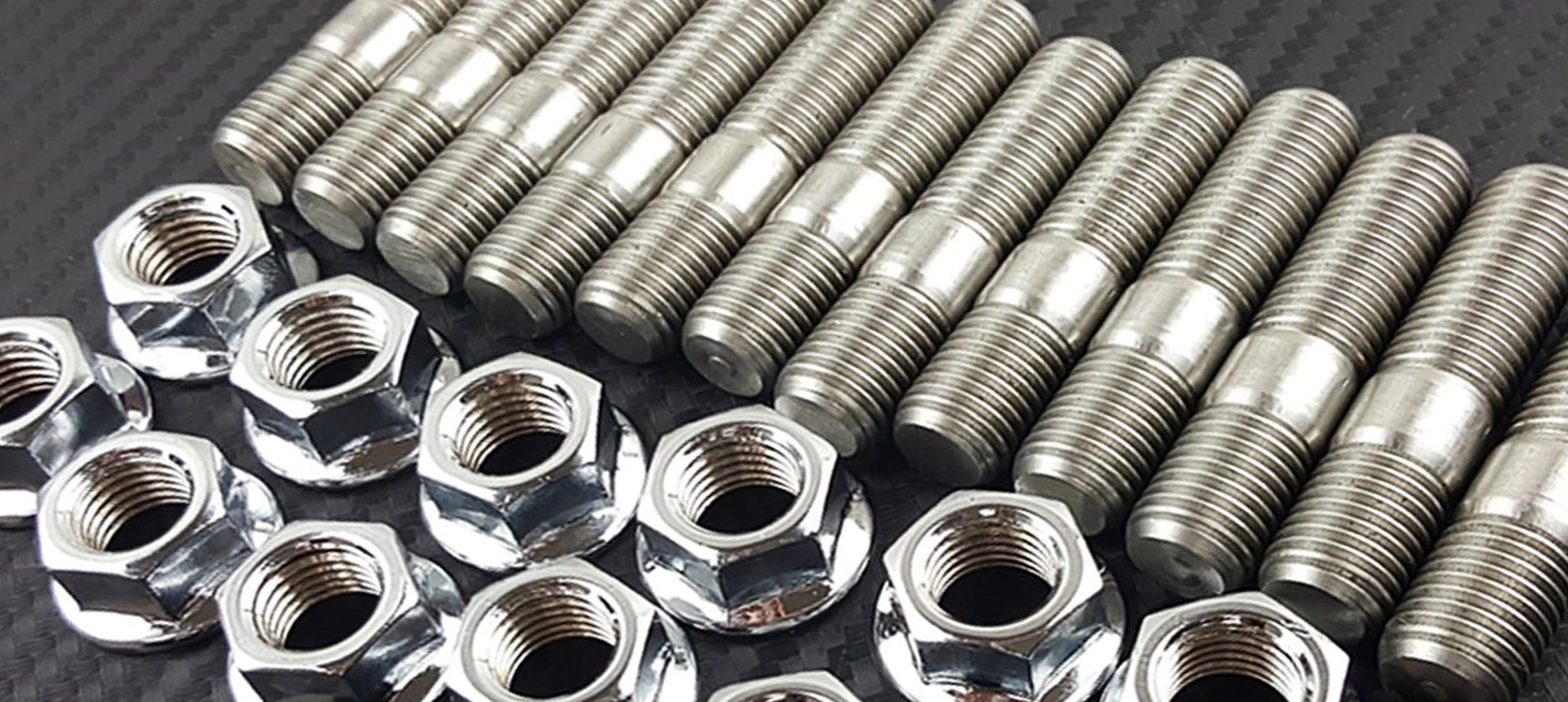
Explorer les techniques d'usinage CNC pour la production de boulons implique de mettre à profit des processus avancés contrôlés par ordinateur pour créer des fixations filetées très précises et cohérentes. Ces techniques utilisent divers outils de coupe, tels que des moulins, des tours et des broyeurs, pour façonner les matières premières dans des conceptions de boulons personnalisées avec des tolérances serrées. L'usinage CNC permet une production efficace et rentable de boulons en petites ou grandes quantités, répondant aux besoins de diverses industries. Cette technologie garantit la plus haute qualité, précision et résistance des boulons, contribuant à la sécurité et aux performances globales des produits et des structures assemblés.
Les avantages de l'usinage CNC pour la fabrication de boulons sont nombreux, notamment une précision, une cohérence et une efficacité accrues. Ce processus contrôlé par ordinateur permet la création de conceptions de boulons complexes avec des tolérances serrées, assurant un ajustement et des performances supérieurs. L'usinage CNC réduit l'erreur humaine et permet une production rapide de petites et grandes quantités, répondant aux divers besoins de l'industrie. De plus, cette technologie minimise les déchets de matériaux et optimise l'utilisation des matières premières, contribuant ainsi à la rentabilité et à la durabilité. Dans l'ensemble, l'usinage CNC révolutionne la fabrication de boulons, offrant des fixations fiables et de haute qualité pour diverses applications.
Différents types de boulons servent à des fins diverses dans diverses industries, fournissant des solutions de fixation essentielles pour un large éventail d'applications. Voici un aperçu de certains types courants de boulons:
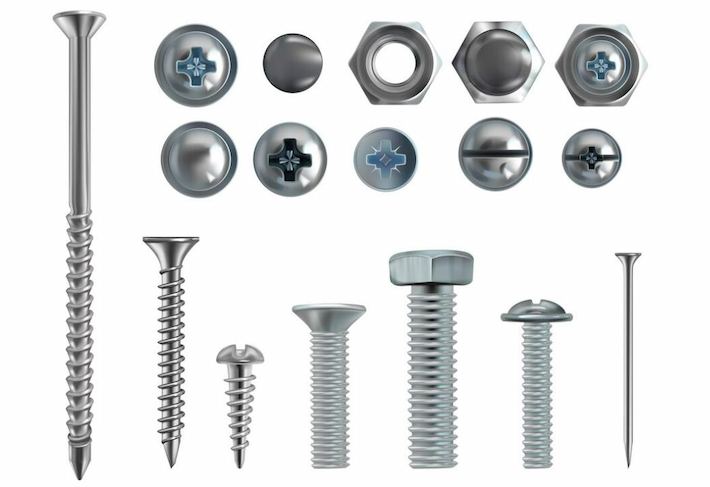
Boulons forgés:
① Boulons Hex:
Forgé avec une tête hexagonale et un arbre fileté.
Couramment utilisé dans les applications lourdes en raison de leur force.
② Boulons de transport:
Forgé avec une tête lisse et arrondie et un cou carré en dessous.
Idéal pour les applications nécessitant une finition visuellement attrayante.
③ Boulons d'oeil:
Forgé avec une tête en boucle (œil) pour fixer des câbles ou des crochets.
Souvent utilisé dans les applications de levage ou comme points d'ancrage.
Boulons formés à froid:
① Boulons de bride:
Formé à froid avec une bride plate élargie sous la tête.
Conçu pour les applications nécessitant une distribution de charge.
② Boulons à bascule:
Fabriqué à l'aide d'un mécanisme à ressort pour ancrer des objets lourds.
Convient aux installations murales creuses.
Boulons de roulement de filetage:
① Boulons en U:
Processus de laminage de filetage utilisé pour créer des boulons en forme de U avec des extrémités filetées.
Généralement utilisé pour sécuriser les tuyaux, les tubes et les câbles.
② Boulons d'ancre:
Le roulement du filetage assure des fils précis pour la stabilité lorsqu'il est intégré dans le béton.
Utilisé dans les applications structurelles et de fondation.
Boulons forgés à chaud:
① Boulons d'ascenseur:
Forgé à chaud avec une tête plate et un haut peu profond et carré.
Idéal pour une utilisation dans les systèmes de convoyeur et les seaux d'ascenseur.
② Boulons de charrue:
Spécifiquement conçu grâce au forgeage à chaud pour les applications de labour.
Dispose d'une tête plate et d'un col carré pour éviter de tourner.
Boulons usinés de précision:
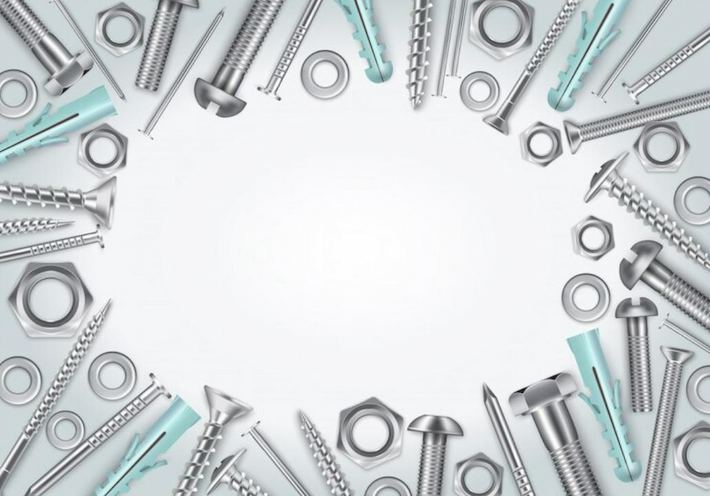
① Boulons de contrôle de tension:
Usiné avec des conceptions spécialisées avec des cannelures ou des rainures.
Nécessite une clé spéciale pour une tension précise lors de l'installation.
② J-boulons:
L'usinage de précision crée des boulons en forme de J couramment utilisés pour suspendre les articles.
Souvent utilisé dans la construction et pour le soutien des tuyaux.
Boulons entièrement filetés:
① Boulons de goujon:
Boulons entièrement filetés sans tête, conçus pour être utilisés avec des écrous.
Usiné pour la précision et utilisé dans les connexions à brides pour les pipelines et les récipients sous pression.
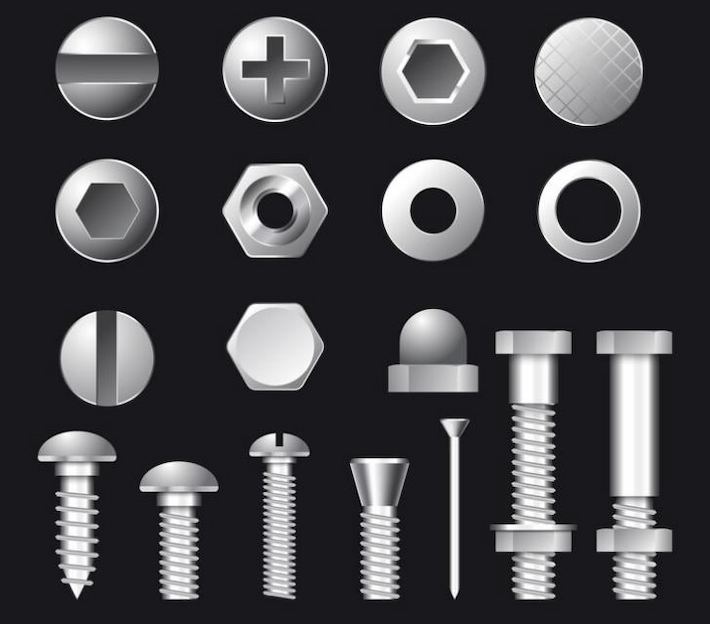
Ce ne sont là que quelques exemples de la gamme variée de boulons disponibles, chacun conçu pour répondre à des besoins spécifiques dans des industries allant de la construction et de l'automobile à la fabrication et aux infrastructures. Le choix du type de boulon dépend de facteurs tels que l'application, les exigences de charge et les conditions environnementales.
Le choix de boulons de haute qualité est essentiel pour assurer la sécurité et la fiabilité des structures et des assemblages. Voici quelques facteurs clés à considérer lors de la sélection des boulons:
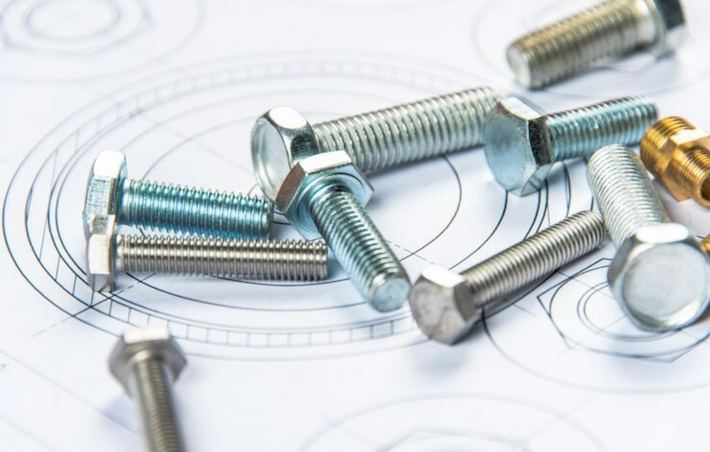
Qualité matérielle:
Optez pour des boulons fabriqués à partir de matériaux de haute qualité, tels que l'acier inoxydable ou l'acier allié, connus pour leur résistance et leur résistance à la corrosion.
Considérez les conditions environnementales auxquelles les boulons seront exposés et choisissez des matériaux capables de résister à ces conditions.
Force et Grade:
Faites attention aux marques de résistance et de grade sur les boulons. Les boulons de qualité supérieure ont souvent de meilleures résistances à la traction et au rendement.
Faites correspondre la qualité du boulon aux exigences spécifiques de votre application, en vous assurant qu'il peut gérer les charges attendues.
Revêtement et finition:
Les boulons sont souvent revêtus pour améliorer leur durabilité et leur résistance à la corrosion. Les revêtements courants comprennent le placage de zinc, la galvanisation ou d'autres revêtements résistant à la corrosion.
Choisissez des revêtements adaptés à l'environnement prévu, tels que des conditions extérieures ou de forte humidité.
Type de taille et de filetage:
Sélectionnez des boulons de la taille correcte et du type de filetage pour votre application. Le diamètre, la longueur et le pas de filetage doivent correspondre aux exigences du joint à fixer. Assurez-vous que les fils sont propres, bien formés et non endommagés.
Application-Caractéristiques spécifiques:
Considérez toutes les caractéristiques spécifiques requises pour votre application, telles que les revêtements spécialisés, les propriétés anti-corrosion ou les types de tête uniques.
Certaines applications peuvent exiger des boulons avec des caractéristiques spécifiques, telles que celles conçues pour les environnements à haute température.


